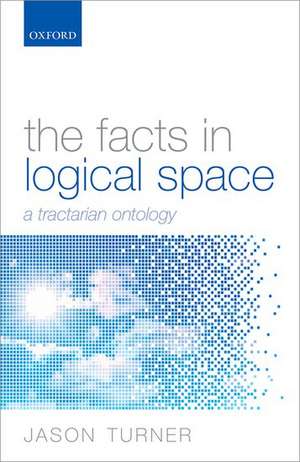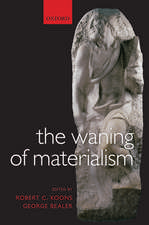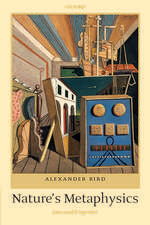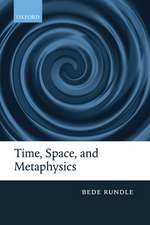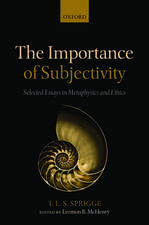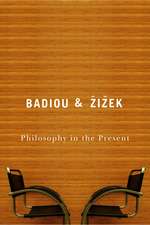The Facts in Logical Space: A Tractarian Ontology
Autor Jason Turneren Limba Engleză Hardback – 4 feb 2016
Preț: 554.80 lei
Preț vechi: 792.59 lei
-30% Nou
Puncte Express: 832
Preț estimativ în valută:
106.16€ • 111.14$ • 87.84£
106.16€ • 111.14$ • 87.84£
Carte tipărită la comandă
Livrare economică 25-31 martie
Preluare comenzi: 021 569.72.76
Specificații
ISBN-13: 9780199682812
ISBN-10: 019968281X
Pagini: 376
Dimensiuni: 158 x 241 x 27 mm
Greutate: 0.7 kg
Editura: OUP OXFORD
Colecția OUP Oxford
Locul publicării:Oxford, United Kingdom
ISBN-10: 019968281X
Pagini: 376
Dimensiuni: 158 x 241 x 27 mm
Greutate: 0.7 kg
Editura: OUP OXFORD
Colecția OUP Oxford
Locul publicării:Oxford, United Kingdom
Recenzii
An excellent piece of analytic metaphysics: the care, precision, detail, and breadth of Turner's presentation constitute a model for how to develop a metaphysical idea. Anyone intrigued by the basic factalist idea will learn an immense amount about it from this book, and would be unwise to attempt to develop or evaluate it without thinking through the body of related issues that Turner insightfully explores...Turner's work addresses, from a novel perspective, questions the definitive answers to which might well yield deep insight, and it provides a vivid sense of answers these questions plausibly might have.
Notă biografică
Jason Turner received his PhD from Rutgers in 2008 before going on to work at the University of Leeds, St Louis University, and most recently the University of Arizona. He thinks mainly about metaphysics and philosophical logic but is secretly interested in everything. Much of his recent work focuses on the interaction of metaphysics with logical notions, such as existence and identity. He has also published work on modality, free will, the philosophy of religion, and the structure of mental content, and will probably continue to so dabble until someone makes him stop.
